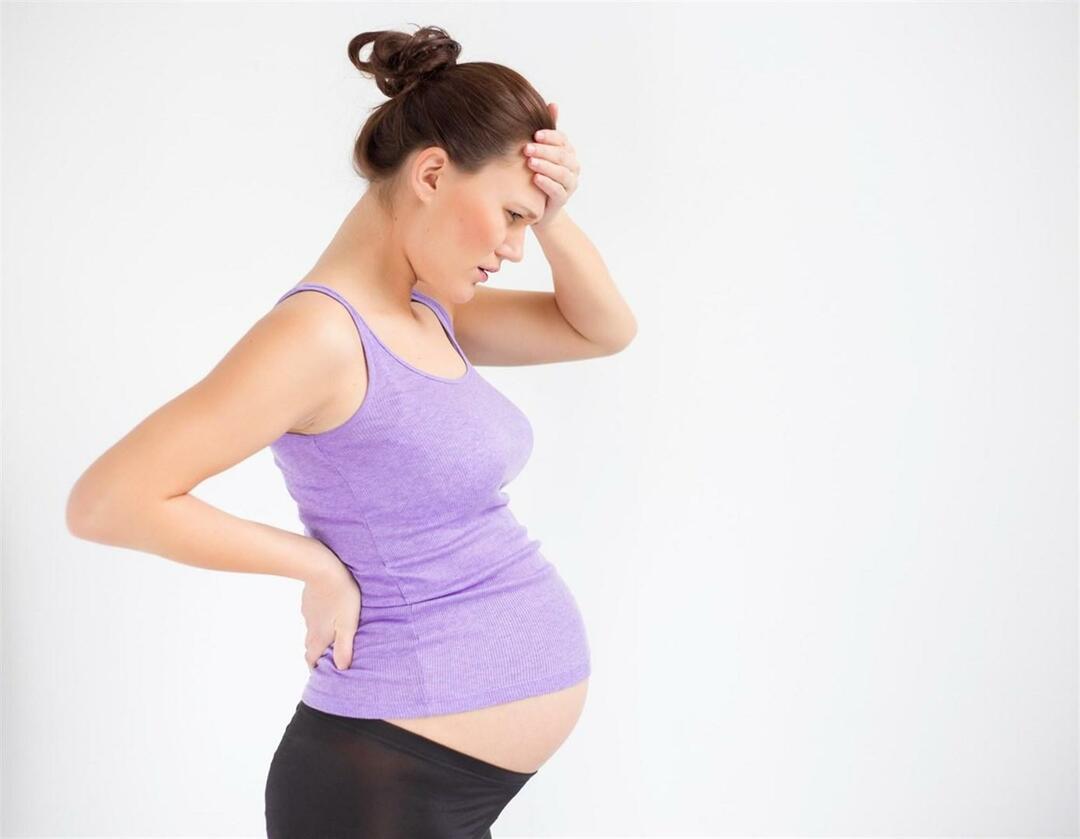Content
- SARS during pregnancy
- Cold during pregnancy in the 1st trimester
- Cold during pregnancy: 2nd trimester
- Cold during pregnancy: 3rd trimester
- Why pregnancy doesn't like colds
- Alarming symptoms of a cold during pregnancy
- COVID-19, influenza and acute respiratory infections in pregnant women
- Do I need to knock down high fever during pregnancy
- Are homeopathic medicines allowed during pregnancy?
- Is a runny nose dangerous during pregnancy
- Safe runny nose treatment
- Preparations for the common cold
- Rhinitis of pregnant women
- Treatment of rhinitis during pregnancy
- Throat treatment during pregnancy
- What can a pregnant woman do with a dry cough
- Cough and sore throat lozenges
- "Hols" during pregnancy
- When to apply "Hols"
- How Hols can hurt
- Alternatives to Halls
- Caramel lollipop "BOBS" during pregnancy
- Is it possible for a pregnant woman to put mustard plasters, pepper plaster for colds
- What medications can be taken during pregnancy for colds
- Will vitamin C help for colds
- What is not recommended to do
- Prophylaxis
SARS during pregnancy
SARS during pregnancy is a group of clinically similar acute respiratory infections caused by pneumotropic viruses and developed during gestation. It manifests itself as a rapidly growing catarrhal syndrome: runny nose, dry cough, pain and sore throat, hoarse voice. The phenomena of general intoxication are observed: fever, headache, weakness, weakness, myalgia, arthralgia. Diagnosed by ELISA, PCR, general blood test. In the course of treatment, antipyretic, expectorant, antitussive, mucolytic, anti-inflammatory, antiobstructive drugs, in severe cases - donor immunoglobulin, interferon, its inducers, immunomodulators.

Cold during pregnancy in the 1st trimester
The main threat of a cold during pregnancy lies precisely in the first weeks after conception. The ovum is just beginning to develop, the first outlines of the organs are being laid, and the immune system is severely weakened and is not able to fight the infection. The main feature is that the placenta is not yet fully formed, and the embryo remains completely defenseless.
Possible consequences of a cold during pregnancy in the first 5-8 weeks:
- disturbances in the formation and work of the placenta, as a result of a failure in the nutrition of the embryo;
- disorders in the development of the embryo, damage to the brain, heart and nervous system is formed, with the successful development of pregnancy in a child, defects and deviations are possible;
- the saddest outcome is early miscarriage.
It is still not necessary to panic with a cold during pregnancy in the early stages, because the mental state can aggravate the situation even more. However, you should consult a doctor immediately in order to avoid extreme consequences - termination of pregnancy. Only a doctor will prescribe an effective treatment for a cold during pregnancy, and a gynecologist will monitor the development of the fetus through an ultrasound scan (ultrasound).
Cold during pregnancy: 2nd trimester
The second trimester begins at the fourteenth week of pregnancy and lasts for the twenty-eighth week. At this time, the formation of the baby's internal organs ends. The child already has a brain, spine, arms, legs and a layer of adipose tissue, and produces its own hormones. Even future fingerprints were formed. During this period, the child grows rapidly and prepares for an independent life.

In most cases, if the expectant mother is relatively healthy and her immunity is strong, a cold cannot cause perinatal pathologies. But still, various infections can negatively affect the placenta, causing placental insufficiency, and also lead to intoxication of the woman's body. This can cause fetal hypoxia - oxygen starvation. Also, viruses contribute to the activation of dormant foci of infection, which previously did not make themselves felt. Therefore, during the second trimester of pregnancy with ARVI, antiviral treatment is indicated.
Cold during pregnancy: 3rd trimester
The third trimester lasts from the twenty-eighth week to the fortieth week. The growing fetus has already formed all the organs, systems, and now their maturation continues. The future baby begins to distinguish sounds, is able to react to noise. The immune, endocrine and nervous systems continue to develop. SARS in late pregnancy can lead to a number of negative consequences.
Due to the large abdomen, the expectant mother may complain of shortness of breath and even pain under the ribs when breathing. And when coughing, there is tension in all respiratory muscles, diaphragm and abdominal muscles. Jerky coughing fits affect the condition of the uterus, which increases the risk of premature birth. With a severe runny nose and a stuffy nose of the expectant mother, the baby receives less oxygen, which is also not useful. Oxygen deficiency can lead to increased mobility of the baby, which can lead to cord entanglement. This increases the risk of a complete cessation of oxygen supply and the development of severe complications.
Antiviral treatment is also indicated for pregnant women during the third trimester. Use only reliable, time-tested drugs that are approved for pregnant women. This must be noted in the instructions. One of these antiviral drugs is VIFERON. In late pregnancy, you can use the drug in the form of suppositories and gel.
Why pregnancy doesn't like colds
Most people are used to colds and have learned to cope with them, even when the body is under serious attack. But a cold during pregnancy is a separate case that requires a particularly high-quality approach to treatment. It is well known that the sensitivity and susceptibility of pregnant women to colds and any other infectious diseases is much higher. A cold during pregnancy has a much higher chance of provoking various complications, including the threat of termination of pregnancy 3.
So why is a cold during pregnancy especially scary? The main reason is physiological changes in the body of a pregnant woman, in particular in the respiratory system - there is swelling, edema of the mucous membrane of the upper respiratory systems, proliferation of blood vessels (increased vascularization).
Edema of the bronchi and a general decrease in the tone of the bronchi are especially pronounced. Due to the growing uterus, the diaphragm rises, which puts an increased load on the cardiovascular system. The body reacts to this with a logical decrease in the functionality of the bronchi, that is, it tries to reduce the overall load on the cardiovascular system. Reduced ventilation rates in the lungs make the respiratory system more vulnerable. That is, during pregnancy, it is much easier for various viruses and bacteria to gain a foothold inside the body3.
Another important factor is the weakening of the immune system. During pregnancy, the immune system is also rebuilt, because otherwise it can give a command to the body about foreign intervention. The consequences of this action of immunity are sad - the rejection of the growing fetus (miscarriage) follows. The body deliberately reduces the strength of the immune system so as not to harm the unborn child. Naturally, the antiviral and bacterial protection decreases, which pathogens are happy to use3.
Alarming symptoms of a cold during pregnancy
It is no secret that for the possibility of bearing a fetus, the mother's immunity is somewhat reduced. However, the body fights the infection just like it normally does. Therefore, the symptoms are temporary and usually disappear within 10-14 days.
Alarming signs of a cold during pregnancy can be considered:
- temperature rise over 38 ° С;
- persistent cough lasting more than 2 weeks;
- deterioration of health: weakness, headache, etc.
COVID-19, influenza and acute respiratory infections in pregnant women
The general term ARI includes both bacterial respiratory diseases and ARVI (including COVID-19) and influenza. The doctor should determine the cause and prescribe treatment, since there is a difference in the methods of therapy and in the effect of these diseases on the fetus and the course of pregnancy.
The most dangerous of these is considered to be an influenza infection. Infection with coronavirus can also cause severe symptoms, however, at the moment, studies indicate a low risk of such a course of the disease in expectant mothers. Because of the potential impact of influenza on mother and child, seasonal influenza vaccination is recommended for all pregnant women or those planning to become pregnant.
A mild course of acute respiratory infections, as a rule, does not affect the development of the child and goes away on its own with symptomatic therapy. However, if the disease has caused a significant increase in temperature, breathing disorders, a pronounced deterioration in well-being, consultation of a therapist is imperative.
Do I need to knock down high fever during pregnancy
At temperatures below 38 degrees, no action should be taken: the body fights the virus. If the temperature is higher than this value, and the woman tolerates it hard, then you can use the following techniques:
- Tea with raspberries or linden blossom;
- Acetic rubdown.
Of the antipyretics, the safest drug is Paracetamol and Panadol
At temperatures above 39 degrees, an ambulance should be called.
It is important to stop fever in pregnant women in a timely manner, since a high temperature can negatively affect pregnancy. It is especially dangerous in the first 12 weeks, when all organs and systems are laid. Hyperthermia in pregnant women during the first trimester doubles the likelihood of developing neural tube defects (in the future it is the brain and spinal cord), and may also be associated with other birth defects and adverse outcomes in the baby.
It is not known for certain which temperature indicator is the most dangerous. Thus, data from a cohort study involving more than 77 thousand women showed that the incidence of defects development was approximately the same among those who noted a fever below 39 and above 39 degrees in the first trimester.
The drug of choice for lowering the temperature is paracetamol, which is approved for use throughout pregnancy. In addition, in the first and second trimesters, ibuprofen is used as an antipyretic and analgesic. Multivitamins containing folic acid can reduce the risk of developing defects due to hyperthermia.
Are homeopathic medicines allowed during pregnancy?
Indeed, homeopathic medicines, including those showing antiviral effect, are usually not contraindicated for use during pregnancy. However, the principal should take into account that clinical studies confirming the safety of these drugs in pregnant women are absent, therefore manufacturers often indicate in the instructions the need to correlate risk and benefits. Sometimes there are notes about the possibility of using the drug after consulting a doctor.
Is a runny nose dangerous during pregnancy
There may be several reasons for the development of a cold (rhinitis) in a pregnant woman:
First, it is an acute respiratory infection (ARI). The causative agents of ARI are most often respiratory viruses (rhinoviruses, influenza and parainfluenza viruses, adenoviruses, etc.), slightly less often - bacteria (staphylococci, streptococci, pneumococci, etc.) and even intracellular microorganisms (mycoplasma, chlamydia and etc.). Often, against the background of the course of a viral infection, the bacterial flora also joins, then the infection becomes mixed. The main symptoms of ARI, along with nasal congestion and rhinorrhea, are fever, weakness, lethargy, sore throat and sore throat, and cough. With a cold and acute respiratory infections, a pregnant woman should not delay a visit to the doctor, because a runny nose is only one of the symptoms of infection. Read about how to treat a cold in pregnant women in the article. If the expectant mother does not receive adequate and timely treatment, she can harm not only herself, but also the unborn child. Do not bury drugs in the nose without first consulting a specialist. It will not be superfluous to carefully read the instructions for the use of drugs, since many drugs have restrictions for pregnant women.
Various sinusitis, which are catarrhal and purulent, can become formidable complications of infectious rhinitis:
- Sinusitis - inflammation of the maxillary paranasal sinuses;
- Frontitis - inflammation of the frontal paranasal sinus;
- Ethmoiditis is an inflammation in the cells of the ethmoid bone.
In these conditions, the main danger is the development of purulent inflammation and the accumulation of pus in the cavities. With the development of such a scenario, the patient may face surgical intervention, which will be doubly unpleasant during pregnancy.
Secondly, it is allergic rhinitis. If a woman has previously encountered allergies, then you should inform the attending physician about this in advance so that he can pick up the medicines that the expectant mother can use. But it happens that allergic rhinitis occurs in a pregnant woman for the first time, because pregnancy is associated with hormonal changes in the body, which means that the reactivity of its immune system will change.
The culprits of allergic rhinitis are respiratory allergens:
- Household and library dust or mites that inhabit it;
- Pet hair and dandruff;
- Insects;
- Plant pollen;
- Mold and mildew that live on the walls.
Safe runny nose treatment
Of course, a woman in a position needs more careful observation and selection of safe remedies for the common cold, which will help quickly, effectively and will not harm any expectant mother, no fruit.
Drops for pregnant women should be recommended to a woman by a specialist in accordance with the indications and characteristics of the pathological process.
How a pregnant woman should be treated:
- Rinsing the nose with a mild saline solution (2 teaspoons of sea salt in a glass of water). The saline solution improves the flow of mucous from the nose and reduces the feeling of congestion.
- A nasal shower (nasal washer) helps very well. You can use normal saline solution for them.
- Ventilate the room before bed, use a humidifier. Dry air can make unpleasant symptoms worse.
- Use a high pillow (or several pillows) for sleeping so that your head is well above your torso.
- Before going to bed, walks in the fresh air are helpful.
- Exercise in the morning and breathing exercises several times a day to reduce the symptoms of hypoxia.
- Do not use perfume and try not to be near smokers.
During pregnancy, vasoconstrictor nasal drops should not be used, as they can provoke vasomotor rhinitis.
Preparations for the common cold
What can you drip during pregnancy:
- Vasoconstrictor drugs should be used with caution and only after consulting a doctor;
- Antiallergic drugs are also possible for use in pregnant women, but their use is very limited and depends on the duration of pregnancy;
- Silver-based antibacterial drugs are safe for most expectant mothers, but do not forget about the possible the development of allergic reactions, therefore, before instilling them in the nose, you should consult with your doctor a doctor;
- Perhaps the most harmless nasal remedy that can be used during pregnancy is Marimer seawater.
Allowed to rinse the nose with salted water or special solutions from the pharmacy: Dolphin, Aquamaris.
If the swelling of the nose is strong and interferes with breathing, then vasoconstrictor drops are allowed twice a day: Nazivin, Vibrocil. Do not exceed the dosage: no more than 2 times a day and no more than 1-2 drops in each nostril for 2-3 days.
When the puffiness has subsided, then you can use Pinosol drops, they are made on the basis of mint, pine and eucalyptus oils.
You can massage the wings of the nose and sinuses, having previously lubricated with Doctor Mom or Asterisk ointment.
Aloe juice solution mixed with water in a 1: 1 ratio helps with a cold.
Rhinitis of pregnant women
Rhinitis of pregnancy is a common pathology that occurs in about 30% of expectant mothers. Rhinitis during pregnancy is usually not a threat to both the fetus and the mother, but improper treatment can lead to unpredictable consequences.

Rhinitis during pregnancy is not dangerous, but it worsens the quality of life of a woman during pregnancy.
Most often, pathology occurs:
- up to the 20th week of pregnancy inclusive - in this case, rhinitis usually goes away on its own (after about a month or two) and does not manifest itself in the later stages;
- after the 20th week of pregnancy - this condition can continue until and after childbirth (after 2-3 weeks).
If symptoms last longer than two months and are not relieved by any independent action (vasoconstrictor sprays are prohibited for use!), then the reason may be hidden in chronic disease.
Symptoms:
- Difficulty nasal breathing, nasal congestion;
- Unpleasant sensations in the nose, sneezing;
- The presence of a transparent mucous discharge;
- A feeling of tightness in the nose and sinuses;
- Mild headaches.
Difficulty in nasal breathing in the mother leads to sleep disturbance and hypoxia, which the fetus also feels.
Treatment of rhinitis during pregnancy
In our clinic, a thorough diagnosis is carried out in order to exclude symptoms similar to rhinitis. After the examination, individual treatment is prescribed depending on the severity, severity and indications.
Treatment is complicated by the fact that many drugs can cause contraction of the myometrium and impaired blood flow to the fetus or vasoconstriction with impaired placental function. Therefore, a doctor should prescribe drug therapy, you cannot use drugs on your own - they can cause a violation of the development of the fetus.
Preparations for taking during pregnancy are selected with great care and individually. Oral systemic corticosteroids are not prescribed to pregnant women, although their effect on the fetus is not fully understood. In some cases, the doctor prescribes aerosolized corticosteroids. Oral administration of antihistamines is also not prescribed due to the increased risk of embryopathies. The choice of physiotherapy is also limited, because most methods negatively affect the development of the fetus.
Throat treatment during pregnancy
If a pregnant woman has a sore throat, then we treat a sore throat as follows:
- Gargle with a saline solution or decoction of soda - proportions 1 teaspoon to a glass of warm water. Rinse every hour.
- Rinse with chamomile, eucalyptus infusion.
- Gargling with a solution of Miramistin, Furacilin or Chlorhexidine.
- If there is no temperature, then you can smear the neck along the lateral surfaces (the thyroid gland is not allowed) with the Asterisk or Doctor Mom balm, then wrap the neck with a scarf or scarf.
Of the drugs are safe:
- Geksoral (2 times a day, one dose)
- Ingalipt
- Lizobact
- Faringsept
- Stopangin (allowed in the 2nd and 3rd trimester)
After any throat procedures, you should refrain from eating and drinking for half an hour.
What can a pregnant woman do with a dry cough
Antitussives, like mucolytics, are prohibited from taking during pregnancy at all or allowed under medical supervision after assessing the risks and benefits. So, the popular centrally acting antitussive agent butamirate is allowed to be taken only in the II and III trimesters and only after consulting a doctor. The drug of peripheral action, prenoxdiazine, is also used with caution during pregnancy. Thus, when counseling a pregnant woman with a dry cough, she should be advised to see a doctor as soon as possible.
Antihistamines
According to a review published in the Journal of Pharmacology & Pharmacotherapeutics, none of the available antihistamines are not classified as safe for use in pregnant women women. Funds from the H1-antihistamines group are in the secondary category list, that is, they are prescribed only if the benefit significantly outweighs the potential risks, despite the fact that there is no substantial evidence that taking them causes serious effects.
Drugs that suppress the cough reflex are prescribed only by a doctor when assessing all risks! Before using cough medicine, you should turn to local remedies: rinsing and irrigating the throat with saline, soda solution, sprays, and absorbable tablets.
Cough and sore throat lozenges
During pregnancy, it is possible to prescribe expectorant and mucolytic agents.
"Hols" during pregnancy
Despite the excellent situation, pregnant women, like everyone else, sometimes get sick. Naturally, in case of illness, it is necessary to use medications that will not harm the health of the future mother and baby. Therefore, if the throat hurts, it is necessary to quickly get rid of the problem before it becomes serious.
The question of whether it is possible for pregnant women to have a sore throat is often of interest to women with crumbs in their tummy.

Halls, despite being sold in supermarkets and kiosks, possesses some kind of drug substance. Antiseptic and disinfecting effects help to stop pain until the moment of visiting a doctor. Holes can be used for pain relief and temporary use.
But at the first feeling of discomfort, you should go to the attending physician to undergo an examination, because a pregnant woman is responsible not only for herself, but also for the crumb that grows inside.
Hols lollipops, in all their variety of flavor combinations, still cannot relieve a pregnant woman of serious respiratory diseases. Hols helps only with mild stages of colds, in case of severe sore throat, you need to drink drugs prescribed by your doctor.
Even if medications seem harmful, one should imagine how much worse it is for the crumbs if there are complications after the illness. Therefore, you never need any self-medication, Hols is only an auxiliary tool that helps to dull acute pain.
When to apply "Hols"
Lozenges "Hols" are designed to relieve bronchospasm, dryness and sore throat. Thanks to the soothing effect, the intensity of spasms and irritation of the mucous membranes of the throat is reduced.
The use of lollipops is justified in such cases:
- the cough is not caused by a disease, but, for example, a torn voice or mechanical damage to the mucous membrane;
- therapy aimed directly at the disease is underway, but lozenges are used to relieve the spasm;
- the expectant mother is not allergic to the components of the drug;
- they are prescribed by a doctor, and the risk to the fetus is assessed.
How Hols can hurt

Despite the fact that lollipops do not belong to medicines, they have certain components that are undesirable for taking while carrying a baby. This includes flavors, colors, E additives, and herbs. They can have a negative impact on the development of the baby in the womb and the course of pregnancy. They are also not recommended during lactation.
As part of "Hols" there is glucose syrup (not prescribed for diabetics), eucalyptus oil.
A product designed to be sucked every two hours, but not more than 10 lozenges per day.
Most physicians will answer yes to the question of whether it is possible to have Hols during pregnancy. But only as a temporary remedy, it should not be abused, as well as a medicinal or auxiliary agent.
Alternatives to Halls
If possible, it is better to use natural substances instead of Hols to treat the disease:
- For example, you can drink tea with raspberries or milk with ginger and honey.
- Also, as an alternative, any mint candies are suitable, which also refresh and envelop the lining of the larynx.
- You can try melted sugar on a spoon, which is useful for soothing a sore throat and relieving coughs. This remedy is also used to treat children.
If possible, you should immediately contact the clinic at the first signs of the disease. A doctor who knows the individual characteristics of your body will be able to prescribe the most effective treatment, which will help not to let the course of the disease take its course, which is dangerous in such a situation for a woman and for the future baby.
Caramel lollipop "BOBS" during pregnancy
Caramel BOBS is a sucking lollipop that softens and refreshes the mouth and throat.
Lollipops are produced in several types: with honey, lemon, mint, raspberry, eucalyptus, sage, cherry, strawberry, melon flavors, as well as with the taste of wild berries and green tea.
The composition of caramel includes mint, anise, eucalyptus oil and various extracts that have an anti-inflammatory and emollient effect (propolis, fir, menthol and others).
When using lozenges, the mucous membranes of the mouth and throat are enveloped and an invisible film is formed, which softens and relieves inflammation.
Lozenges are not recommended for use in pregnant patients, as well as during breastfeeding.
If necessary, use during lactation, breastfeeding should be discontinued.
Is it possible for a pregnant woman to put mustard plasters, pepper plaster for colds
Despite the fact that both mustard plasters and pepper plaster work externally and do not affect the development of the fetus, they are potentially dangerous for the course of pregnancy. Heat treatments can increase the contractile activity of the uterus, which is associated with an increased risk of miscarriage or premature birth. In addition, the enhancement of microcirculation, which occurs under the action of mustard plasters or pepper plaster, can change the uteroplacental blood flow, which is also undesirable. The greatest danger is presented by thermal procedures in the first and last trimester of pregnancy - in the first, they increase the risk of miscarriage, in the last - premature birth.
What medications can be taken during pregnancy for colds
If a pregnant woman has a cold or caught a virus, you need to be treated as follows:
- Observe strict bed rest. You don't need to be brave and heroic, because in addition to your own health, you need to think about the health of the unborn child;
- You need to drink tea with honey or jam. It is better to choose raspberry, but if it is absent, strawberry or strawberry will do;
- You can gargle with chamomile broth.
If the disease persists, the temperature rises, you should consult a doctor. You cannot self-medicate and drink medicines, because many medicines that people take for colds are contraindicated for expectant mothers. Medicines are prescribed individually, based on the situation, and the doctor himself selects them.
What medications can I use?
- You can bring down the temperature with Paracetamol (both tablets and suppositories).
- Hols lollipops will temporarily help relieve a sore throat.
Will vitamin C help for colds
It is not true. For a long time, ascorbic acid was considered almost a panacea for influenza and other colds. But now scientists have come to the conclusion that this vitamin does not prevent the development of acute respiratory viral infections and does not accelerate treatment if the disease is already in full swing.
In some cases, ascorbic acid can reduce the manifestation of clinical signs of the disease. It also improves stamina in healthy people when combined with proper nutrition. However, if a person does catch a cold, vitamin C is powerless.
What is not recommended to do
It is important to understand that therapy in pregnant women is very different from usual. It is categorically impossible to take medications without the consent of your doctor. Many drugs are contraindicated in pregnancy, others are prescribed only if the potential benefit outweighs the harm.
A cold without fever requires symptomatic relief. Her treatment excludes drugs that include alcohol, antibiotics, sulfonamides. Their appointment should be supervised by a doctor.
Washing and drinking plenty of fluids is good if the first signs of a cold are observed. Complications are always treated by a specialist. Help is needed urgently if:
- high temperature (above 39 degrees) or it does not go astray;
- there is constant vomiting;
- the tone of the uterus or contractions is observed;
- there is bleeding from the vagina;
- on the fifth day there is no improvement, the general condition worsens;
- there is a rash.
Prophylaxis
Difficulties in treatment make prevention particularly urgent. A drug such as Aqualor can prevent ARVI even at the most influenza time. It helps not only to prevent, but also to quickly get rid of the disease at the first symptoms.
ARVI prevention measures are simple and affordable:
- Pregnant women should limit visits to crowded places with a large crowd of people in closed indoors, wash your hands more often (personal hygiene), beware of hypothermia, i.e. dress for the season and for weather.
- Proper balanced nutrition, vitamin intake and more positive emotions are of great importance.
- After returning from the street or working at home, it is a good idea to rinse your throat with seawater and use a nasal toilet.
- Before work, lubricate the nasal cavity with oxolinic ointment or peach oil.
- Take care of proper air humidification at work and at home (ionizers, humidifiers)
Important! Do not forget about regular walks in the fresh air, a full sex life (in the absence of contraindications) and sports (taking into account the physiological characteristics of a pregnant woman).
Sources of
- https://www.KrasotaiMedicina.ru/diseases/zabolevanija_gynaecology/SARS-pregnancy
- https://womenfirst.ru/stati/beremennost/prostuda_pri_beremennosti_opasnyy_vrag/
- https://viferon.su/prostuda-pri-beremennosti-v-1-2-i-3-trimestre/
- https://MedAboutMe.ru/articles/prostuda_pri_beremennosti_kak_bezopasno_izbavitsya_ot_simptomov/
- https://MedAboutMe.ru/articles/prostuda_vo_vtorom_trimestre_beremennosti_kogda_opasna_i_kak_lechit/
- https://www.katrenstyle.ru/cribs/shpargalka_orvi_uberemennyih
- https://www.marimer.ru/articles/kapli-v-nos-dlya-beremennykh/
- https://lorlor.ru/articles/rinit-beremennyh/
- https://c9m.ru/vedenie-beremennosti/lechenie-prostudy-vo-vremya-beremennosti/
- https://FB.ru/article/462427/hols-pri-beremennosti-vozmojnyie-posledstviya-mneniya-medikov
- https://ideales.ru/mozhno-li-beremennym-zagorat-na-solnce-chereschnyu/mozhno-li-prinimat-hols-beremennyim.html
- https://wer.ru/opisanie/karamel_ledentsovaya_bobs/
- https://ona-clinic.ru/services/reception_specialists/dlya-vzroslykh/ginekologiya/prostuda-orz-orvi-pri-beremennosti-posledstviya-lechenie/
- https://viferon.su/kak-prostuda-vliyaet-na-beremennost/
- https://aqualor.ru/poleznaya-informatsiya/stati/lechenie-prostudy-pri-beremennosti/
